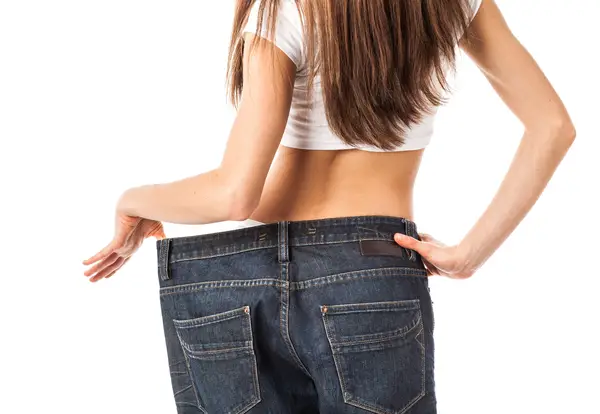Today in the mail I got one of those slick mini-magazines from my insurance provider. You know, those glossy publications stuffed with breezily written lifestyle advice along with lots of phone numbers and URLs for their various departments and services. Which is useless, because when you need something, you’re just going to call their main number and ask them to transfer you to whoever you should talk to, anyway.
One of those mailings that leads you to wonder, “How much is this particular rag adding to the cost of health care?”
Right on Page 2 was an article, “6 Healthy Tips for Weight-Loss Success.” It contained the usual vapid gems like “talk with your primary care provider” — a person whose medical training includes virtually nothing about nutrition, and even if it did, the current mainstream advice is still woefully off target, in the main.
Another “tip” exhorts the reader to “slow down” and “put your fork down between bites,” because of course, the reason we struggle with weight has nothing to do with the composition of the food we eat, and everything to do with the fact that we’re gluttonous, out-of-control debauchees.
In other words, according to my insurance provider, it’s not the food itself that’s the problem; it’s me. I just stuff my face too fast.
Why is my insurance provider giving me life advice, again? Isn’t their job just to pay my medical bills? Tell me again, how come they can afford to do so much of the former, at the same time they say they can’t afford to do the latter?
But the tip that really got to me was this one: “Cook creatively.”
That got my interest. What did they mean? Finding new combinations of spices or veggies? Buying cookbooks to get ideas about new dishes? Exploring ethnic cuisines? Preparing breakfast foods for dinner, and vice-versa?
Based on the headline, that tip actually sounded promising. Learning to cook is the best way to get something really good to eat, as I’ve been saying for years. The more you learn, the more creative you can be. Just as with any skill, as you progress, you can free yourself from recipes and build things that are truly your own.
I read on. Oh! That wasn’t what they meant. At all.
What followed the “Cook creatively” headline was, to me, a complete non-sequitur: “Instead of using butter or cream, cook vegetables in a non-stick pan or try grilling or steaming them.” How come? The weight-loss “tip” continued: “These methods don’t add any calories.”
In other words, don’t add fat to your vegetables.
The underlying idea, of course, is that calories make you fat. Eat less calories, and you’ll lose weight. Therefore, don’t add anything caloric to your veggies, and your veggie dish will be less fattening. Use a plastic-coated (i.e. non-stick) pan, because the benefit of cutting calories is totally worth letting bits of plastic gradually wear into your food.
Only one problem with that logic.
Your fat-free grilled/steamed/misted-and-sauteed veggie will leave you hungry.
You’ve made a dish that won’t move the needle on your hunger. Broccoli, spinach, eggplant — they provide virtually no calories. You eat some, and you’re still hungry. You eat enough, and eventually your stomach becomes full; yet somehow you’re still hungry.
Fat is the most satiating nutrient there is. Prepare veggies with plenty of it, and you’ll be satisfied. Otherwise, you’re setting yourself up to crave sweets later in the meal, or later in the day.
Also, it’s much more difficult to store fat as body fat. So it’s smart to eat plenty of it, so that you fill up on food that isn’t per se fattening. You leave less room for starches or sugars, which do pack on the pounds.
Another factor: fat, and to a lesser extent, protein. fill you up in a way that’s self-regulating. You don’t have to count calories or grams, if you don’t want to. In contrast, if you’ve followed a low-fat weight-loss regimen, you know how hard it is to toe the line.
I well remember making myself count every calorie on lowfat dieting. It took conscious effort of will to eat only so much, and no more. Then there was the ideation between meals and preplanned snacks. You know, those visions of food that flash through your mind unbidden. Those images that you cannot prevent. Know that they arise because of physiological triggers. Your body is calling for food that has some component that it needs right now. These images and urges do not mean that you’re weak or greedy.
Try this: use plenty of butter or other healthy, natural oils in your veggies, and you’ll find it’s easier to skip the sugars and starches. Otherwise — well, you might very well find that you’re still hungry.
And when you are hungry after following helpful “tips” like that one, please know that it’s not because you’re some kind of glutton. It’s not because you lack “will power.” It’s not because you’re weak, sloppy, or self-undermining.
Maybe you just didn’t get enough to eat.

